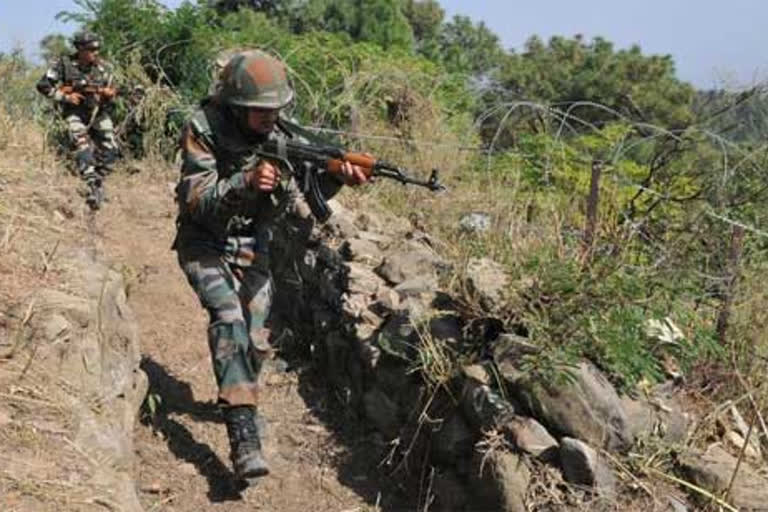New Delhi:October 20 marked one of the bloodiest days along the Line of Control (LoC) between India and Pakistan. There were nine confirmed deaths of soldiers and civilians, but both sides claimed even a higher degree of damage. The Indian Army's artillery barrage hit Pakistani posts, gun positions, and terrorist launch pads, and General Bipin Rawat stated that "six to ten Pakistani soldiers had been killed and three terrorist camps destroyed." In what has become a stock response, the Pakistan Army media wing dismissed Indian statements and claimed to have killed nine Indian soldiers.
This is the usual war of words that goes on between India and Pakistan after each ceasefire violation (CFV), and twitter warriors on both sides jump in with fake videos of demoralised soldiers and destroyed posts. This tends to obscure the reality of the real deadly conflict that is currently raging along the LoC.
After more than a decade of intense artillery exchanges along the LoC, India and Pakistan agreed to a ceasefire agreement in 2003. For the next ten years, this ensured a degree of calm and brought immense relief to civilians living in border areas. I am mentioning civilians because they are the least protected and suffer the most in any CFV. In May 2018, more than 76,000 villagers in the Arnia sector abandoned their homes to escape Pakistani shelling, and similar scenes were witnessed on the other side of the border.
In my view, 2013 was the year that everything changed, and it was because Pakistan Army was uncomfortable with an improving security situation in Kashmir and the victory of Nawaz Sharif, who was seen as soft towards India. The Pakistani deep state upped the ante with an increase in CFVs and attacks on security forces camps at Hiranagar, Samba, and Janglote.
The Indian elections of 2014 brought in a government that adopted a strong and uncompromising attitude towards terrorism emanating from Pakistan. Tensions between the two countries escalated, and CFVs jumped from approximately 100 in 2012 to more than 2000 in 2018. Last year’s figures for firing have already been exceeded in the first ten months of 2019.
Why do CFVs occur? There is a commonly accepted view that Pakistani troops initiate firing on Indian posts to give cover to infiltrating terrorists. This is borne out by the number of infiltration attempts that happen along the LoC. According to data from the Ministry of Home Affairs’ latest annual report, 1461 terrorists attempted to infiltrate into Jammu and Kashmir between 2014 and 2018.
However, exchanges of fire are not only due to infiltration. The LoC has a life of its own, and both sides seek to impose their will on the enemy. In this quest for moral domination, casualties to own soldiers cannot go unpunished, as was witnessed on October 20 when India’s retaliation followed the martyrdom of two of its soldiers. This 'eye for an eye' approach may sound highly provocative, but a defensive attitude can slowly chip away at the morale and spirit of units deployed on the LoC. Liddell Hart’s maxim that 'the issue of battle is usually decided in the minds of the opposing commanders, not in the bodies of their men’, is taken very seriously.
Is there a way to break out of the current cycle of violence? The answer to this question is simple in theory but difficult in execution. The ball is firmly in Pakistan Army's court, and if it puts a check on infiltration, violent incidents along the border will automatically reduce, and so will the retaliation from the Indian Army. However, there is currently no indication that the Pakistan Army is even willing to consider such a move; in fact, they do not even acknowledge that any infiltration is taking place from their side. With India-Pakistan ties at a new low, there is little scope for actions from either side that could enhance confidence-building and lead to calm along the border.
The grim reality is that in the short term, there is unlikely to be any change in the situation along the border, and guns will be doing all the talking. One step that can be taken is to cut out the rhetoric from both sides, if for no other reason than out of respect for the many soldiers and civilians who have lost their lives in the firing and who will continue to do so.
Read: China's military modernization provides useful lessons to India
